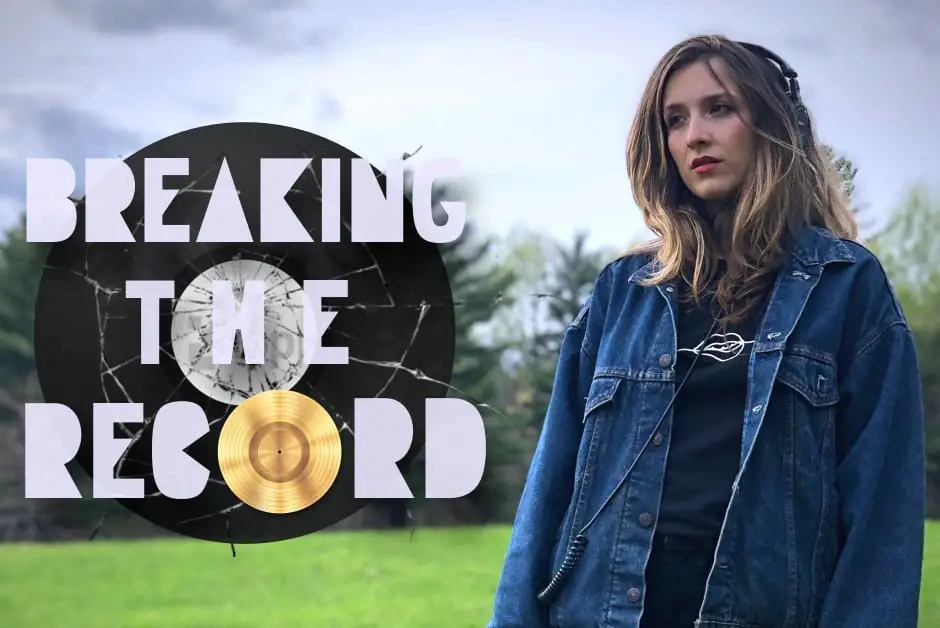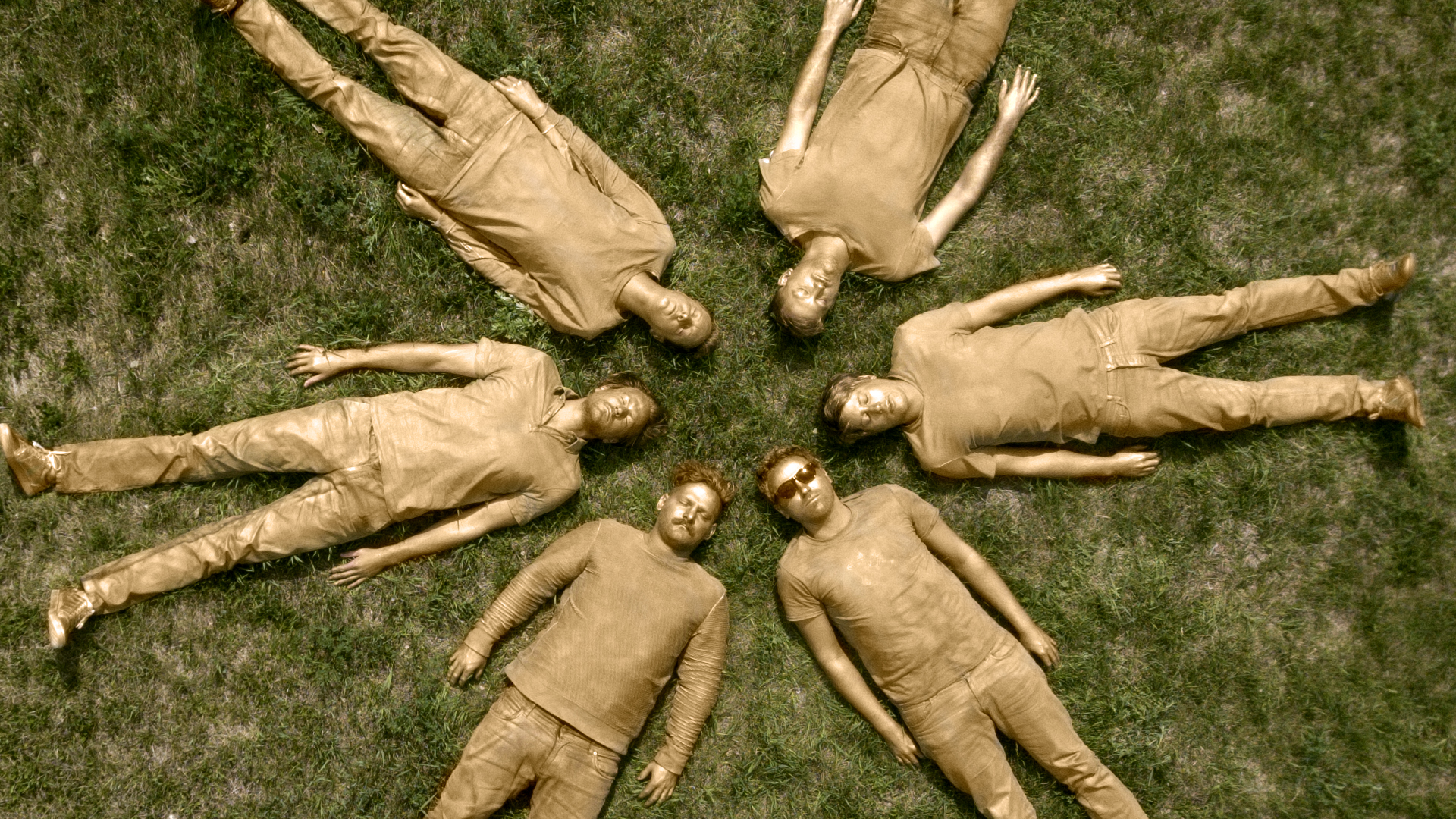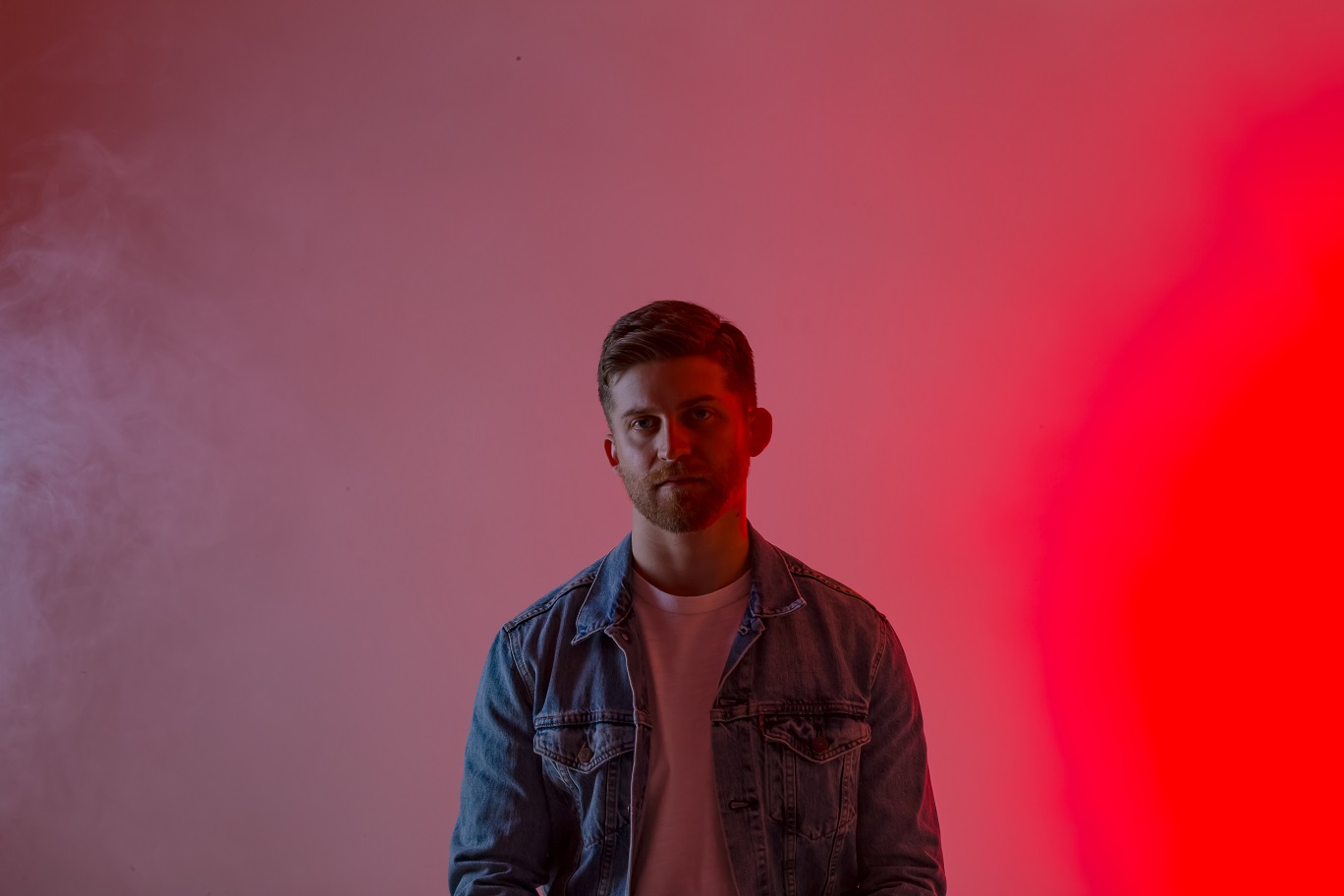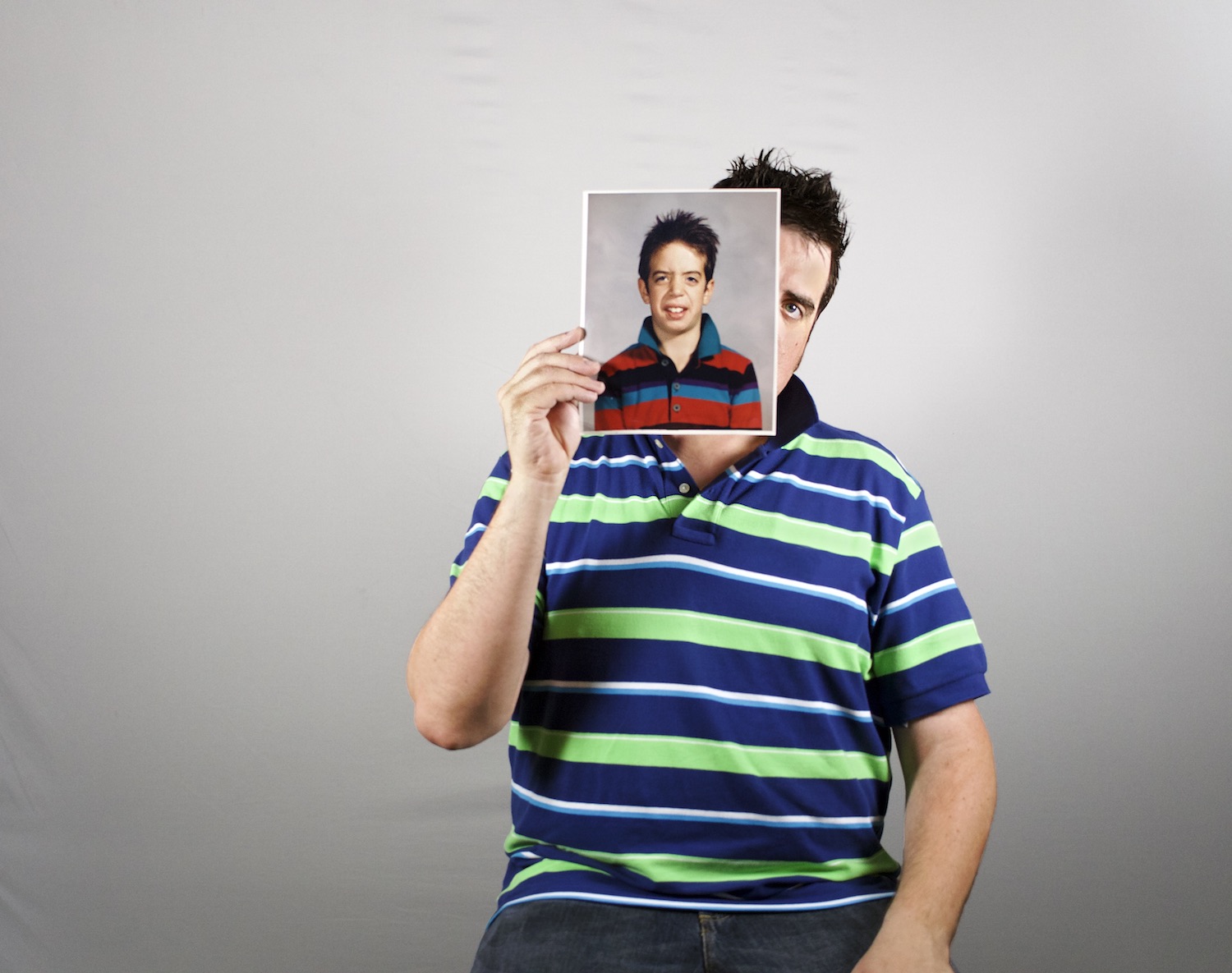Micah Visser speaks extensively about Boniface’s journey so far, their upcoming self-titled debut album, accepting the unknown, the harsh realities of being an emerging artist, and more.
— —
Boniface is a band that you’d be a fool not to familiarise yourself with. Part of what makes them so special is their awe-inspiring ability to craft lyricism that makes multi-faced emotions digestible without diluting the unique detail of the inspiration behind their songs. At times, their music feels cinematic yet still rooted in intimate emotion.
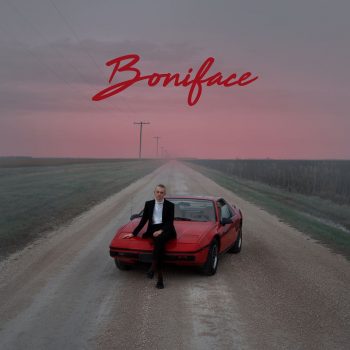
Boniface’s often nostalgic lyricism feels wistfully romantic without succumbing to overused romantic platitudes that feel disingenuous. Within the same song, they can effortlessly manage to incorporate euphoric excitement and raging anxiety. Just like the emotions that are wholeheartedly poured into their music, their music embodies the often-perplexing nature of emotions.
Even the most exhilarant of experiences can be tainted by harrowing memories, but that distinct contrast between how you felt and how you’re feeling now can amplify the current emotions to all-consuming level. This is perhaps best exemplified within Boniface’s music by their incredible track “Dear Megan”, that, as noted in Atwood Magazine’s Today’s Song review, where “gleaming guitars and scintillating lyricism serve to generate this spirited sentiment, but this energy still has buried undertones of apprehension and uncertainty.”
Boniface is the solo project of Micah Visser, and that moniker serves as the name of his self-titled debut album, which is due for release on the 14th of February. Having already supported the likes of Circa Waves last year, Atwood Magazine caught up with Micah before they supported White Lies at the iconic Brixton Academy in London!
A CONVERSATION WITH BONIFACE
Atwood Magazine: You released “Keeping Up” on the date you announced your album. What was it about “Keeping Up” that made you want to coincide the release date with the album announcement?
Boniface: “Keeping Up” was probably one of the first songs that I wrote on the album. So I’ve been just holding on to it for a while, kind of waiting for the right time to share it. I feel like a lot of the sentiments that are within “Keeping Up” kind of carry through the whole record. And it’s also the most pop, I guess. I just wanted a nice fun pop song with the announcement of the record, because ultimately, it’s a pop record.
How did you decide upon the release date of Valentine's Day?
Boniface: We knew that we wanted kind of an early 2020 release, and I think its kind of a romantic record. So it just made sense to put it up on Valentine’s Day and I’m really happy that it worked out like that. Obviously, it wasn’t like structured like that. It wasn’t like two years ago I was like we’re putting them on Valentine’s Day. It wasn’t like that. It was just going to be released around that time, so Valentine’s Day ended up being really convenient, also I think it’s nice.
In terms of the tracklisting on the album, how did you decide what songs made it on the album? For example, “Phantom Limbs” & “Again & Again” didn’t make the cut. Did you know from the start or did it evolve a lot through the process?
Boniface: It definitely evolved a lot, and specifically with the tracklist I went back and forth. Ultimately, I feel like the record now has a pretty strong consistent narrative. With songs like “Phantom Limbs” and “Again & Again,” I really like them as songs, but I just didn’t quite feel like they existed within the same world as the other 12 tracks.
Listen: “Keeping It Up” – Boniface
“Dear Megan” is literally one of my favourite songs of all time. I love exuberant energy in the track, but, like a lot of your music, it doesn’t just encapsulate one emotion. Weird question, but is that appreciation of incorporating every emotion and thought that goes into one experience something you think about when making music?
Boniface: That’s actually a really flattering question because I try the music as expansive as possible. I try to really capture a feeling in my songs. Often, when I’m writing, I’m writing from a feeling less from a specific experience more just really trying to convey something with as much power as possible. So I think it’s really nice that you asked that question because that means the bittersweet nature of life kind of comes through in the music to you. That’s really nice to hear because I’m writing from real feelings and trying to capture them, and I think real feelings very rarely are just happy or sad.
There’s such a massive scope in everything we feel. So I think I try to capture as much of that scope in the songs and I think sometimes it works.
With the album, how was working with amazing people like Neil Comber and Michael Dunn on it?
Boniface: It was great. It was great to work with Neil; that was towards the end of the record. I feel like I have a really eclectic creative process; it’s really hard for me to finish something and really just put a stamp on something when it’s done.
So, Neil did a great job of working with me taking, like, five to seven years of demos and different synth sounds and ideas and just condensing it into, you know, proper record. The whole process of making the album was unconventional because like there’s some things on the record that I, like, recorded just straight into a laptop, like, years and years ago. There there’s a lot of stuff that we recorded like at the pool or in some studios in Winnipeg or at my home studio.
Anyway, I think it all just came together finally but I definitely needed someone like Neil to focus in and make it into something.
“I Will Not Return a Tourist” is the first song of yours that I heard that in like March 2018. I was just coming to the end of studying abroad and it was a weird time; I just really connected with that song and attributed my own meaning to it. Sorting going off of that, with like providing quotes for PR to explain a song and like interviews, are you ever uneasy with explaining the meanings behind songs, the reason they probably liked the song first place is because they’re attributing their own meaning to them? How’s that process?
Boniface: Oh, it’s so hard. Yeah, I don’t love doing those quotes. That’s just because I really try to keep as little of myself out of the songs after the songs have been shared. I really like the idea of once I’ve shared a song of it being just a clean slate for whoever is listening to it to project their own experiences.
I think about the music that influenced me most and I never once read what a song was actually about, and it made me like the song more. It was always a little bit of a let-down because it meant something so personal to me and then it’s not that and almost detracted from that. So I really prefer not to explain too much about what my songs were about because once I share them then they belong to the people that are listening to them and not me anymore. I think I’d just so much rather have them just belong completely to whoever’s listening to it, and it just be their experiences and their interpretations.
Going back to the album, at what point did you decide it was going to be self-titled?
Boniface: I had a ton of names. But, then, I think the record ended up having a much larger scope than I was expecting. Originally, it had a much smaller scope. I wanted it to be, like, two years, like high school because that’s when I started writing. I just wanted it to be about like the experience of graduating high school and what that does, when you see people, you know, doing different things, and I don’t know, it was just like a really turbulent time for me. So I kind of wanted to capture that. But then as I started recording the record, I started writing a lot more material. Then it just ended up just stretching bigger and bigger.
At a certain point, I felt like any name that I haven’t taken from any of the songs or lyrics just wouldn’t really properly capture what the record is about. Now for me, the record is really just about all my experiences growing up. Like, there’s a couple of songs I was reflecting on, like being really young, like there’s a song called “Stay Home” that’s just about growing up in Winnipeg. And that’s about jus the complexities of being a kid and just realising how things work.
Anyway, so I started writing songs like that. And then I started writing songs that to me felt a lot more mature because I, like, you know, I’ve been out of high school for a while and I’ve been seeing a lot more of the world with this music. At a certain point, I just felt like Boniface was the only thing I could really capture what the record was. Like, basically, it’s every experience that I’ve had, but into music as well as I can put it into music.
What was the creative process behind the cover visuals?
Boniface: That came together pretty last minute. We’d gone through a lot of different ideas. Mario had done all of our previous single art and I love like the otherworldly sort of abstract, but very location-based photos. It’s like you feel like there’s a story behind every photo, but it’s just vague enough that it can be whatever story you want it to be.
And I feel like my music is very similar to that. So each song is kind of like each photo which just ties it into whatever the song is about. So, Mario and I had discussed a few ideas for the album art, and he’d taken a few photos, but we didn’t feel like they quite captured the scope of the record, because it’s not just one tiny place anymore. We needed to capture all 12 songs with the album art, so Joey and I went out to the country together and took the photo with the car.
I felt like I really wanted to have the prairie landscape because prairie to me, is just, like, what kind of defines where I’m from. Like, it defines Manitoba and defines Winnipeg. It’s just really vast and can feel really empty. I just wanted that photo to define what the album is, which is just me sort of on my own reflecting on a lot of experiences. And then I feel like Mario was able to through it and give it the otherworldly edge that a lot of the songs on the album have.
Obviously, you’re a Canadian band but you’re signed with Transgressive in the UK. How did that affinity with the UK start? And did you ever fathom playing venues like Brixton Academy?
Boniface: Yeah, it was very weird. We’d been playing little tiny Canadian festivals for, like, two years under my name. It was originally a solo project and we did the thing where you get in the minivan and just drive back and forth in Canada and play every tiny little bar.
Then we played this one festival called Breakout West where they tried to get as many, like, industry people to a tiny town in Canada. Anyway, there was a friend of Tim Delos there and then Tim just heard the demos and he really connected with them weirdly. Then spoke on the phone a few times they put out “I Will Not Return As A Tourist” on their single label and we just got along really well. So just kind of went from there.
When I started talking with Tim, it wasn’t even Boniface. We had, like, a few months of downtime after we started talking and I just wanted to use the opportunity to put forward something that I could think about a little bit more. With Micah Visser, I’d been, you know, playing songs acoustically since I was like 16 and I’d been posting it all and stuff.

How was that first show as Boniface? Like what was the transition like?
Boniface: We actually played three in a row; we did three shows in three weeks. We played, like, 12 songs because we wanted to practice all of them. They were really weird. Also, at that point, we were not really a good live band at all. So yeah, we had some pretty rough early shows for sure.
But it’s good, like, Winnipeg has always been such a fun, supportive community. With Micah Visser, we used to get, like, 50 to 100 people in these, like, really small Winnipeg bars.
I remember seeing you in a Midwest dive bar, and by the end, the atmosphere was just electric. It’s honestly one of my favourite gigs that I’ve ever been to.
Boniface: That’s crazy, right? I’m glad you liked it because that’s before we’d played hardly any shows. We were still like a work in progress. We’ve played some really special shows and I feel, like, ultimately, it’s the people that are listening that make it a great show.
In Canada, you’re signed with Royal Mountain Records, who are such an insane label with such amazing artists. The Mental health initiative that they do is amazing. What’s your experience been like with them and working with that label ecosystem?
Boniface: They’ve been great. They work together on Alvvays as well, another Canadian band. So they already had a really good relationship. It’s just been really nice to have a label in Canada as well because they’re close to home. It can be kind of hard being so based out of the UK right now and still living in Winnipeg.
You’re seven hours apart and just the physical space can feel kind of weird sometimes. So it’s been really great to have a Canadian label who know the country a little bit because I think the music scene in Canada is really great. But also, the fact it’s so big and spread out makes it extremely hard for Canadian bands to make it even from city to city. American visas are just terrible; it’s a brutal process. Especially for Canadians.
If you want to be able to tour economically, like, in a way that doesn’t burn your gas and your time, you need to go to America. But it’ll literally cost you like $5,000 to be able to play there. So I think a lot of Canadian bands really struggle because it’s just really hard to get the support and it’s really hard to make it work because it’s so isolated. Anyway, so it’s just been really, really nice to have Royal Mountain on board because know that they know how brutal it can be, especially the bands that from smaller cities or towns where they’re so far away from anything.
Listen: “Wake Me Back Up” – Boniface
You haven’t technically released an EP yet, how did you decide to go straight for the album after the singles?
Boniface: I just had the album in mind from the very beginning; that’s always what I was working towards. I just really wanted something solid and self-contained from the beginning, that’s all I was really focused on. Just getting the songs, putting them in the right order and making it sound right.
So I guess the decision just to release singles came from the fact that an EP would just feel like an incomplete body of work. I just couldn’t put out an incomplete body of work and I’ve always had the 40-minute album in the mind. More than the singles, I’ve just been focused on that.
I think singles are nice, but I honestly don’t really care that much for singles either. With singles, I feel kind of limited in the way they can sound. It’s a lot easier to fully express what a project is with an album.
From the album, “It’s A Joke” and “Oh My God” are on setlist tonight. What unreleased song are you most excited for people to hear?
Boniface: I’m really excited to share basically all of the ones we haven’t released. With the first and last songs, I wrote the record to be bookended by them. They’re both just piano and voice, with a little bit of synth stuff. I feel like those are the times where I was just really able to actually, like, speak honestly without thinking too about how it can fit within the song structure and stuff.
So yeah, I’m very excited for people to hear both of those songs. In those quieter moments, I feel, like, I’m able to be really vulnerable. I try to put vulnerability in everything I do but it’s just a lot harder to be vulnerable in a pop song than it is within a quiet intimate song that’s really lyrically different.
Reflecting on everything that’s happened in the last two years, what’s been the most surprising or least expected thing that’s happened and how’s that changed the way you operate as an artist and band? And what are the biggest misconceptions people have? Like, some of my friends sellout shows and people think they’ve made it, but they’re still struggling.
Boniface: It is really tough. I think the thing that’s honestly surprised me the most is how it continues to grow and continues to gain momentum. Playing here tonight is just something I never thought would have happened a year ago. A year before that when we were doing our first support tour that felt like the pinnacle of what music can be.
Then supporting Circa Waves in Europe this year was the first one where we were in a tour bus and had to share with, like, 10 people. It’s not glamorous but that’s just not something that I ever thought happen with music. Just because it was genuinely just a cathartic thing I did out of school.
Then it’s just kept growing; there’s always been something to do that’s bigger than what we were doing previously. That’s just constantly surprised me and like right now we have the record coming out, but I barely even know what six months into the future of the project looks like and that’s really hard.
Yeah definitely, it must be hard not to have that kind of roadmap. But I guess there’s some comfort in knowing what’s come before?
Boniface: Yeah, that’s what I’m trying to rely on a little bit more now. Because I think like when we first supporting bands we were like “this is great, but how are we ever going to be able to do this on our own?” Now we’re doing the headliner in London, for instance, and that’s just another step forward.
Anyway, I guess it’s just it’s really surprised me how things just happen. How they can just turn out great, and how much better they can be then what you’re expecting. It’s also surprised me how every step of the way just feels so scary because you really don’t know what’s going to happen.
— —
:: pre-purchase Boniface here ::
— — — —
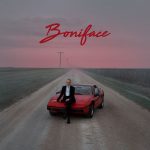
Connect to Boniface on
Facebook, Twitter, Instagram
Discover new music on Atwood Magazine
? © Joey Visser
:: Stream Boniface ::



